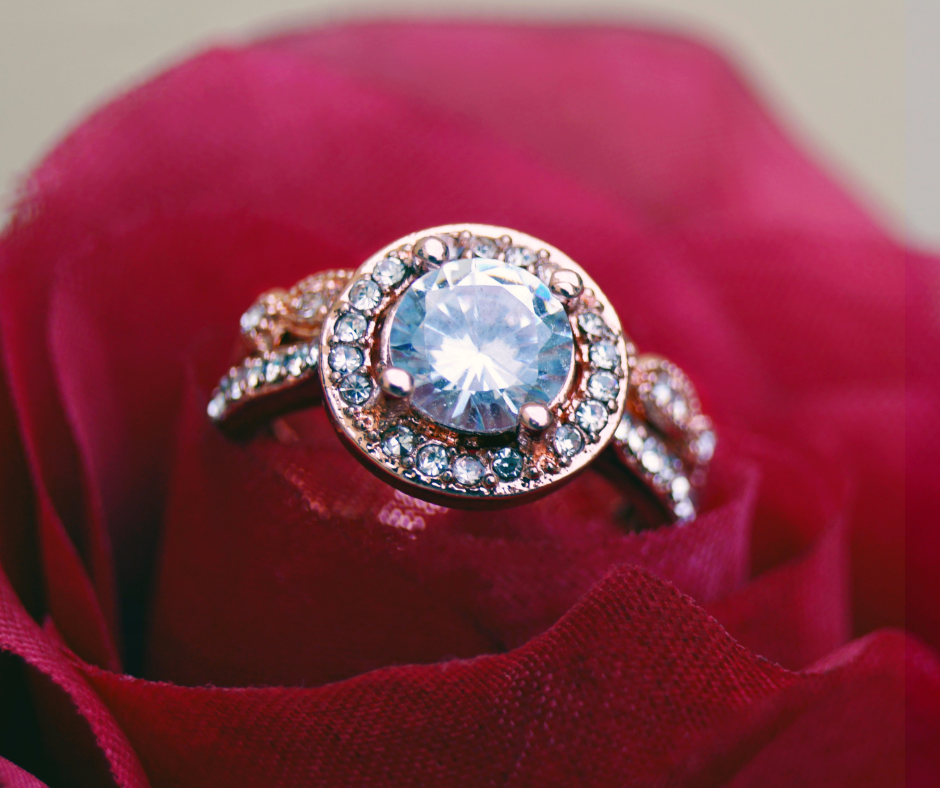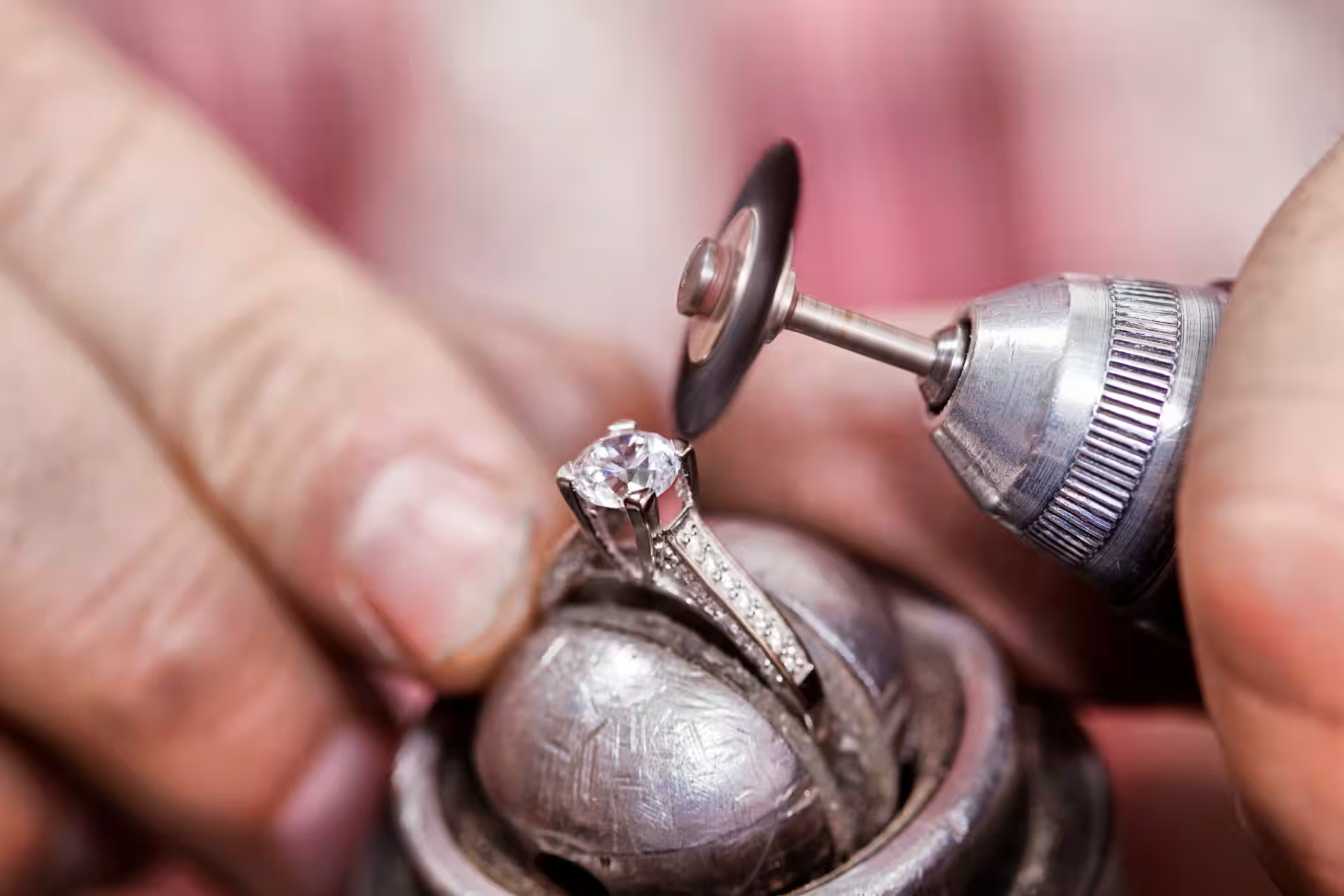With jewellery and watch sales reaching £8.6bn in 2023, the allure of jewellery has never been stronger. For many people, jewellery is not just an accessory but is also an investment that can be enjoyed for years. That’s why taking care of your jewellery is important to keep it looking its best.
Whether it’s a cherished gold necklace that has been handed down through the family, a diamond engagement ring or a pearl necklace, there are some important dos and don’ts when it comes to taking proper care of your jewellery to maintain both its beauty and value.
In this guide, we’ll share our tips on high value jewellery care, including storage, cleaning and maintenance, and insurance, and what to avoid to help you keep it in pristine condition.
1. Do: Get your jewellery regularly cleaned
Regular cleaning is essential for keeping your valuable jewellery looking its best. Cleaning removes dirt and oil build-up that can dull and tarnish the jewellery or loosen stones.
Whilst you can clean them yourself with a mild detergent, lukewarm water and a soft-bristled brush (a clean, soft toothbrush is ideal), the best way to clean jewellery is to take them to a professional jewellery cleaner. It’s a good idea to schedule professional cleanings regularly, especially if it’s a particularly delicate piece of jewellery.
Professional cleaners use gentler and safer methods that will not damage your jewellery. We recommend you ask the cleaner what cleaning methods and equipment they use and what insurance they have in case anything goes wrong during cleaning.
2. Don’t: Try trending home cleaning hacks
The internet is full of DIY hacks for cleaning jewellery, from baking soda, vodka and toothpaste to ketchup, salt and aluminium foil. However, not only are these home cleaning hacks rarely verified by an expert, but you would also risk invalidating your high-value jewellery insurance.
Home cleaning jewellery hacks should also be avoided because they can be very abrasive and cause a chemical reaction that can irreversibly damage the jewellery’s finish and gemstones. Different stones and metals react differently to certain treatments, so a lot can go wrong when using these alternative cleaning remedies.
Stick to using a mild soap and lukewarm water solution to clean your jewellery, or get advice from an expert jeweller on the best method to clean your items safely.
3. Do: Properly store your jewellery
When you’re not wearing your jewellery, you should make an effort to store it carefully in a clean and dry place away from humidity, sunlight or extreme temperatures. Don’t be tempted just to toss it in a drawer. Doing this can cause the jewellery to get scratched, broken or knotted. Use individual jewellery boxes or pouches that have a soft lining to prevent damage.
Here are our top tips for storing jewellery:
- Keep your jewellery in the cloth bag or padded box that it came in
- Use a jewellery box with compartments or use trays to separate individual pieces to avoid them getting tangled
- When travelling, keep individual pieces of jewellery separate in a cloth bag or padded box
- If storing jewellery long term, keep it sealed in a vacuum storage bag
- Keep gold and silver jewellery separate. Gold is a soft metal that can be easily scratched by silver
- Don’t store your items of jewellery in the bathroom, as condensation and steam can damage them
4. Don’t: Wear jewellery during extreme activities
While it can be tempting to leave your jewellery on all day to prevent it from getting lost, there are times when you should take it off, especially when partaking in extreme activities. It’s best to avoid wearing delicate or valuable jewellery during any activities involving extensive physical impact.
Depending on the terms of your policy, we recommend either leaving your item at home or if on holiday, at the main reception at the hotel who will store the item in their main safe.
5. Do: Have routine jewellery inspections
Make it a habit to check your jewellery frequently for damage, signs of wear or loose stones, especially if you regularly wear the piece. Spotting and addressing issues early on will help to prevent further damage. If you see anything of concern, take it to a professional jeweller for inspection.
Based on the inspection findings, the jeweller may provide ongoing jewellery care and maintenance recommendations, including advice on properly cleaning and storing the jewellery to prevent future damage.
We recommend to have the clasps and fastenings checked at least once every three years.
6. Don’t: Expose them to harsh chemicals
Everyday household cleaners, perfumes, lotions, cosmetics and hairsprays contain chemicals that could react with jewellery and damage the gemstones and finish. Also, chlorine in swimming pools and even saltwater in the sea can weaken and tarnish the jewellery, causing long-term damage.
To keep your jewellery in good condition, remember to remove your jewellery before you do anything where it could come into contact with strong chemicals. Waiting for beauty products to dry before putting on your jewellery will minimise exposure to any chemicals and reduce the risk of damage.
7. Do: Get your high-value jewellery appraised
The value of precious metals and gemstones typically fluctuates. Regular appraisals by a jewellery expert will provide you with an up-to-date valuation. Should your jewellery be damaged, lost or stolen, an up-to-date appraisal will ensure that you get the right compensation for the value of your jewellery. Many insurance providers will also require you to have frequent appraisals as part of your policy. This is typically every two to three years.

What is a jewellery appraisal?
In this guide, we’ll discuss everything you need to know about jewellery appraisals and valuations, including what a jewellery valuation is, how to prepare for one, and the cost of getting specific rings, such as engagement rings, appraised.
8. Don’t: Leave valuable jewellery in direct sunlight
Prolonged exposure to direct sunlight can fade gemstones, especially topaz and amethyst, and affect their durability. Delicate materials such as pearls could also bleach in intensive sunlight, while certain stones such as amber can darken due to prolonged exposure to intensive light.
The heat from sunlight can also cause glues to soften and metals to heat up, which could change their shape or colour. For instance, pearls can dry out, which can cause them to discolour and crack. Opals can develop small cracks and may turn brown or white in excessive heat or fluctuating temperatures.
9. Do: Get your high-value jewellery insured
One of the best ways to care for your valuable jewellery is with the right insurance. A typical home insurance policy will cover jewellery up to £1,500. However, this may only cover items lost and damaged in the home. A stand-alone or high-value jewellery insurance policy can cover jewellery items against loss, theft, attempted theft, damage and fire anywhere in the world. These policies may pay out a cash settlement or replace your damaged or missing item on a like-for-like basis.
By taking good care of your valuable jewellery, you can preserve its beauty and financial and sentimental value for generations. Stanhope Insurance can help you protect your valuable jewellery with high-value insurance. Most standard home insurance policies cover jewellery, but don’t often provide full coverage for high-value items or jewellery outside the home.
With Stanhope, you can insure your jewellery for its true value, whether at home or abroad. Our friendly team of expert advisors are here to help you choose the right policy for your needs.
Get a quote now
Very reasonable price, much cheaper than the jewellery shops recommendation
Verified 5 Star Review from ReviewsIO
Sources
https://www.beldiamond.com/blogs/guidance/how-to-take-care-of-your-jewellery
https://www.naj.co.uk/advice/caring-for-jewellery
https://www.fraserhart.co.uk/buyers-guide/10-tips-for-caring-for-your-fine-jewellery.html
https://www.dadaldn.co.uk/blog/the-ultimate-guide-to-caring-for-your-luxury-jewellery-expert-tips-for-cleaning-storing-and-protecting-your-precious-pieces
https://www.express.co.uk/life-style/property/1593292/How-to-clean-jewellery-hacks-silver-gold-evg

